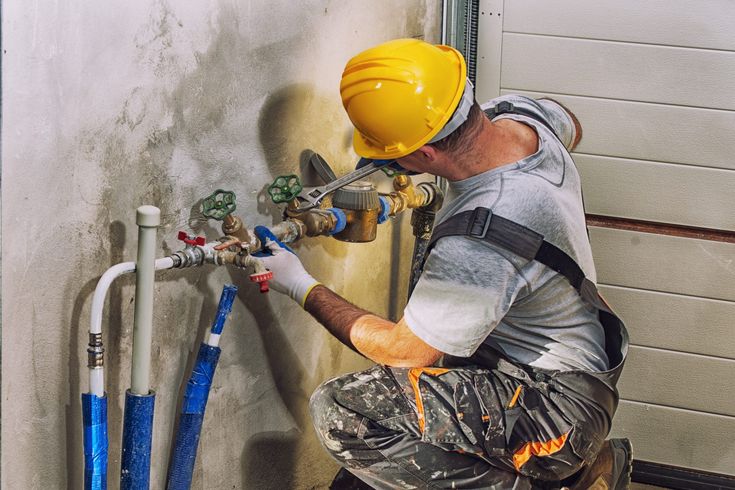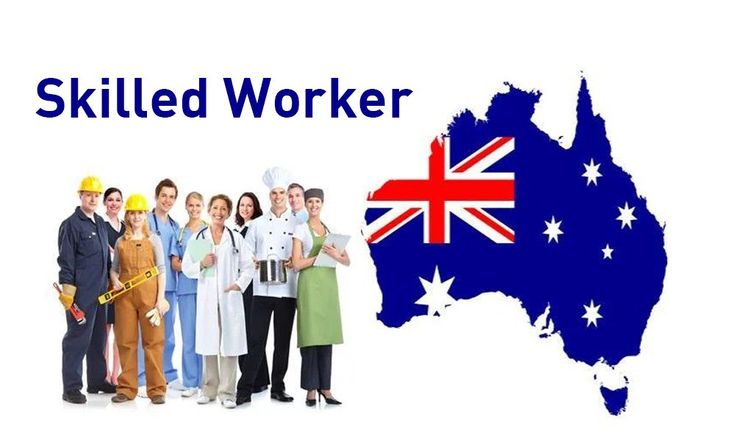Ireland has increasingly become a sought‐after destination for skilled professionals worldwide. With its robust economy, welcoming culture, and progressive work environment, Ireland offers a variety of work visa options designed to attract non-EU nationals. This comprehensive guide delves into the nuances of Ireland’s work visa programs, eligibility criteria, application procedures, and the broader context of global immigration trends. Whether you’re seeking long-term employment or a pathway to permanent residency, understanding these options is crucial to a successful transition. For a broader perspective on international opportunities, you might also find Immigrate to Australia as a Skilled Worker: Points System Explained interesting.
Overview of Ireland’s Work Visa Landscape
Ireland’s work visa system is designed to address labor market needs by attracting highly skilled professionals and filling skill gaps. Non-EU nationals who wish to work in Ireland must navigate a structured process that balances strict eligibility requirements with opportunities for career advancement. The primary visa routes include general employment permits, critical skills employment permits, and intra-company transfer permits. Each option has unique prerequisites that reflect Ireland’s commitment to both economic growth and the protection of its labor market.
Results
#1. 🎓 What is your highest level of education?
#2. ✈️ Are you willing to relocate to another country within the next 3–6 months?
#3. 👤 What is your gender?
#4. 💼 What type of visa‑sponsored job are you most interested in?
#5. 🌐 Which continent do you currently reside in?
Many professionals are drawn to Ireland not only for its vibrant economy but also for its strategic location within Europe. This proximity facilitates further career opportunities and personal growth. In a similar vein, sectors such as Software Developer Jobs in Ireland for Non-EU Citizens (Visa Focus) illustrate the country’s drive to attract top talent from across the globe.
Eligibility Criteria and Essential Requirements
Before embarking on your work visa application, it is crucial to understand the eligibility criteria. Applicants typically must have a valid job offer from an Irish employer, and the position must meet specific skill and salary thresholds. Documentation requirements generally include proof of qualifications, professional experience, and evidence that the job cannot be filled by an EU/EEA citizen. Maintaining comprehensive records is key to demonstrating that you meet the stringent requirements set by the Department of Enterprise, Trade and Employment.
In addition to these basic prerequisites, many non-EU nationals are encouraged to build a strong profile by accumulating relevant work experience and certifications. Similar diligence is required in other global contexts; for instance, those interested in IT Support Roles in Germany: Visa Sponsorship & Requirements will appreciate the meticulous documentation needed to secure a visa.
Types of Work Visas in Ireland for Non-EU Nationals
Ireland offers several visa options tailored to diverse professional profiles. Understanding the differences between these permits can help you choose the best route for your circumstances.
1. General Employment Permit
The General Employment Permit is one of the most common visa routes for non-EU nationals. It is applicable to a broad range of occupations and is typically issued for a two-year period, with the possibility of extension. This permit requires a labor market needs test, ensuring that the job cannot be filled by local talent. Applicants must provide a detailed employment contract and proof that the position meets minimum salary requirements.
For additional insights on specialized professions, you might explore Hospitality Staff Jobs (Hotels/Restaurants) in the UK with Visa Sponsorship, where similar documentation is essential.
2. Critical Skills Employment Permit
Targeted at highly skilled professionals, the Critical Skills Employment Permit aims to attract individuals whose expertise can drive innovation and economic growth. This permit offers numerous benefits, including a fast-track route to long-term residency. Applicants must demonstrate advanced qualifications and command a higher salary threshold compared to the General Employment Permit. It is ideally suited for professions in technology, engineering, healthcare, and finance.
The stringent requirements resemble those in sectors like Mechanic Jobs in the UK: Finding Employers Offering Sponsorship, where employers are equally meticulous about verifying candidate qualifications.
3. Intra-Company Transfer Permit
For those already employed by multinational companies, the Intra-Company Transfer Permit provides an opportunity to work in an Irish branch or affiliate. This permit is designed for senior managers, key personnel, and trainees, enabling a seamless transfer within the same company. Applicants benefit from the streamlined process if they have been employed with the company for a specified period prior to the transfer.
Similar intra-company mobility is seen in other global contexts, such as in Construction Worker Jobs in Canada with Visa Sponsorship Opportunities, where companies also support international transfers.
Application Process: A Step-by-Step Guide
Navigating the application process for an Irish work visa involves several detailed steps. By following a systematic approach, you can increase your chances of approval and reduce processing delays.
- Securing a Job Offer:
The journey begins with obtaining a valid job offer from an Irish employer. Ensure that the employment contract outlines your role, responsibilities, salary, and duration of employment. - Gathering Documentation:
Assemble all necessary documents, including educational qualifications, work experience letters, passport copies, and proof of job offer. Thorough documentation is vital to satisfy visa criteria.
For example, those interested in Plumber Jobs in Canada for Skilled Immigrants with Sponsorship understand the importance of comprehensive documentation. - Employer Application:
In many cases, your employer will initiate the visa application process by applying for the appropriate permit on your behalf. This collaborative approach ensures that both the employer and employee meet regulatory requirements. - Submission to the Department:
Once the application is complete, it is submitted to the Department of Enterprise, Trade and Employment. Regular follow-up is essential to address any queries from the authorities promptly. - Visa Approval and Entry:
Upon approval, you will receive your visa, allowing you to enter Ireland and commence your employment. Post-arrival, ensure you register with the local immigration office as required.
This step-by-step process has parallels with other visa systems, such as the USA K-1 Fiancé(e) Visa Process and Timeline, where each stage demands precision and timely action.
Comparative Analysis: Ireland vs. Global Work Visa Options
To understand the competitive edge of Ireland’s work visa options, it is useful to compare them with other global pathways. Ireland’s streamlined processes and favorable conditions for highly skilled workers make it an attractive destination. When juxtaposed with systems in countries like Canada and Australia, Ireland’s focus on sectors such as technology, healthcare, and finance stands out.
For instance, the UK Global Talent Visa: Pathway for Leaders in Tech, Arts, Science offers a specialized route for high achievers, similar to Ireland’s Critical Skills Employment Permit. Such comparisons help illustrate the relative advantages of choosing Ireland as your work destination.
Table 1: Job Opportunities with Work Visa Sponsorship
Below is a table outlining several job opportunities that are comparable to those available in Ireland, with estimated salary expectations in Euro. Each job title is linked to a detailed post for further insights.
| Job Title | Salary Expectation (Euro) |
|---|---|
| Software Developer Jobs in Ireland for Non-EU Citizens (Visa Focus) | €55,000 – €75,000 |
| Hospitality Staff Jobs (Hotels/Restaurants) in the UK with Visa Sponsorship | €30,000 – €45,000 |
| Mechanic Jobs in the UK: Finding Employers Offering Sponsorship | €28,000 – €40,000 |
| Electrician Roles in Australia: Securing Visa Sponsorship | €35,000 – €50,000 |
| Plumber Jobs in Canada for Skilled Immigrants with Sponsorship | €32,000 – €48,000 |
This table offers a snapshot of job opportunities that, while originating from diverse regions, share a common focus on visa sponsorship and competitive remuneration.
The Labor Market in Ireland for Non-EU Nationals
Ireland’s labor market is dynamic and competitive, particularly for sectors that are experiencing rapid growth. Industries such as technology, pharmaceuticals, and financial services are consistently in need of skilled professionals. The influx of non-EU nationals has enriched the local workforce, contributing to innovation and economic resilience.
The favorable economic climate in Ireland is supported by progressive immigration policies, which facilitate a smooth integration process for foreign workers. These policies ensure that non-EU nationals can transition quickly and begin contributing to the local economy. A similar trend can be observed in High-Demand Jobs in Canada Offering Visa Sponsorship in 2025, where labor market demands drive immigration policies.
Practical Tips for a Successful Work Visa Application
Securing a work visa for Ireland requires thorough preparation and strategic planning. Here are some practical tips to enhance your application:
- Start Early:
Begin gathering documents and securing a job offer well in advance. Early preparation can mitigate unforeseen delays and ensure a smoother process. - Maintain Clear Communication:
Stay in regular contact with your prospective employer and the relevant immigration authorities. Prompt responses to any queries can significantly expedite your application. - Consult Professional Advisors:
Immigration consultants and legal experts can provide invaluable guidance. Their expertise may help you navigate complex regulatory requirements. - Stay Informed:
Immigration policies can evolve. Regularly check the official websites and trusted news sources for updates that might affect your application.
These practical strategies echo the importance of preparedness, as highlighted in Finding Affordable Housing as a New Immigrant in Australia, where early planning is key to a successful transition.
Table 2: Global Work Visa Pathways for Skilled Professionals
The table below presents a comparative overview of global work visa pathways, outlining the program focus and key features for each option. This perspective can help you understand where Ireland stands in the global landscape.
| Program/Option | Key Feature/Focus |
|---|---|
| Top 10 Healthcare Jobs in Australia with Visa Sponsorship for 2025 | Focus on healthcare sector opportunities and structured sponsorship. |
| IT Support Roles in Germany: Visa Sponsorship & Requirements | Emphasis on IT and technical support roles with comprehensive guidelines. |
| Farm Manager Positions in Australia with Visa Pathways | Opportunities in agricultural management with dedicated visa pathways. |
| Canada Express Entry: Comprehensive Guide for 2025 Applicants | Streamlined immigration process for skilled workers in Canada. |
| UK Global Talent Visa: Pathway for Leaders in Tech, Arts, Science | Special route for exceptional talent with a focus on innovation. |
This table provides a global context for work visa options, demonstrating how various countries tailor their immigration systems to meet labor market demands.
Navigating Cultural and Social Integration in Ireland
Beyond securing a work visa, non-EU nationals must prepare for cultural and social integration in Ireland. The transition to a new country involves adapting to different work cultures, social norms, and community practices. Ireland is renowned for its warm and welcoming culture, which often eases the integration process for newcomers.
Engaging with local communities, joining professional networks, and participating in cultural events can significantly enhance your experience. Additionally, many local organizations offer support services specifically for immigrants, which can be invaluable during your initial months in the country. For those looking to understand diverse cultural integration strategies, Remote Work Opportunities with Global Visa Sponsorship offers an interesting comparative insight.
Table 3: Student Visa and Scholarship Opportunities Worldwide
For many immigrants, continuing education or pursuing further qualifications is part of the relocation process. The table below outlines various student visa and scholarship programs available globally, offering insights into additional pathways for international students and professionals.
| Program/Option | Key Feature |
|---|---|
| Fully Funded Scholarships in Germany for International Students (Visa Inc.) | Scholarships that cover tuition and living expenses. |
| Study in Australia: Student Visa (Subclass 500) Application Process | Detailed guidance on applying for Australian student visas. |
| Affordable Universities in Canada for International Students (+ Visa Tips) | Focuses on cost-effective education with visa application insights. |
| How to Get a UK Student Visa: Step-by-Step Guide | Comprehensive instructions for securing a UK student visa. |
| Finding Affordable Housing as a New Immigrant in Australia | Practical advice for new immigrants on securing affordable housing. |
This table highlights the diverse educational opportunities that complement work visa pathways, providing additional resources for those looking to further their academic and professional credentials.
Challenges and Solutions for Non-EU Nationals
Moving to a new country is never without its challenges. Non-EU nationals seeking employment in Ireland may face obstacles such as stringent visa requirements, competitive job markets, and cultural differences. However, being aware of these challenges and planning accordingly can significantly improve your chances of success.
Some common challenges include:
- Navigating Bureaucracy:
The paperwork and processes can be complex. Patience and meticulous attention to detail are required. - Language and Cultural Barriers:
While English is widely spoken in Ireland, adapting to local idioms and work culture can take time. - Job Market Competition:
Ireland’s attractive work environment means that competition can be stiff, particularly in high-demand sectors.
To overcome these challenges, consider leveraging local resources such as career counseling, mentorship programs, and language courses. Preparing well in advance and seeking guidance from professionals can turn potential obstacles into opportunities. This proactive approach is similar to strategies seen in Caregiver Jobs in the USA with Visa Sponsorship Options, where thorough preparation is key.
Future Outlook and Career Opportunities
Ireland’s economy continues to grow, and the demand for skilled professionals remains high. As the country evolves into a technology and innovation hub, opportunities for non-EU nationals are expected to increase. The work visa programs are periodically updated to reflect market demands, ensuring that Ireland remains competitive on the global stage.
Emerging sectors such as fintech, biotechnology, and renewable energy are creating new avenues for career advancement. For forward-thinking professionals, Ireland offers not just a job, but a pathway to long-term career development and even eventual permanent residency. Similar trends can be observed in Construction Worker Jobs in Canada with Visa Sponsorship Opportunities, where economic growth drives continuous demand for skilled labor.
Staying informed about industry trends, attending job fairs, and networking within your professional community can open doors to unforeseen opportunities. Proactive engagement with local and international networks is essential for building a resilient career in today’s competitive job market.
Practical Advice for a Smooth Transition
The process of moving to Ireland can be as challenging as it is rewarding. To ensure a smooth transition, consider the following practical advice:
- Research Extensively:
Gain an in-depth understanding of the Irish work culture, cost of living, and local regulations before you move. - Financial Planning:
Prepare a budget that accounts for relocation expenses, initial accommodation costs, and any unforeseen expenses during your transition. - Legal and Professional Support:
Consulting with immigration experts and legal advisors can provide clarity on the application process and help you avoid common pitfalls. - Community Engagement:
Join online forums, local immigrant groups, or social media communities dedicated to expats in Ireland. Such networks can offer both practical advice and emotional support.
These steps, when implemented early, can significantly ease the adjustment process and help you settle in more comfortably. For additional support on international transitions, consider checking out UK Spouse Visa Financial Requirements Explained, which underscores the importance of financial planning in visa applications.
Success Stories and Testimonials
Hearing success stories from others who have navigated the process can provide both inspiration and practical insights. Many non-EU nationals have successfully moved to Ireland through the various work visa pathways. These testimonials highlight the importance of thorough preparation, persistence, and leveraging available resources.
Real-life examples often illustrate that, despite the challenges, the rewards of living and working in Ireland are well worth the effort. The experiences of others can guide you in optimizing your application and integrating into Irish society. For instance, individuals with backgrounds similar to those featured in Fully Funded Scholarships in Germany for International Students (Visa Inc.) have navigated similar processes, providing useful benchmarks for success.
The Role of Technology and Innovation
Ireland’s strategic focus on innovation and technology has transformed it into a hub for tech startups and established multinational companies alike. This environment not only drives economic growth but also offers exciting career opportunities for non-EU nationals in fields ranging from software development to data analytics.
Staying updated with technological trends and continuously upgrading your skills can significantly boost your employability. The competitive edge in Ireland’s dynamic tech sector often relies on a blend of academic excellence and practical experience. For those interested in the technology sector, insights from $90K+ Tech Jobs in the USA with H1-B Visa Sponsorship can offer a comparative perspective on how technology roles are valued internationally.
Navigating Legal and Regulatory Frameworks
Understanding the legal and regulatory frameworks that underpin Ireland’s work visa programs is essential for a successful application. The Irish government places a strong emphasis on ensuring that the labor market is protected while also facilitating the entry of skilled workers. This balance is maintained through rigorous assessments of job offers, salary thresholds, and labor market conditions.
Keeping abreast of any legislative changes and ensuring that your application complies with the latest requirements is critical. Regularly consulting official resources and, if needed, seeking legal counsel will help you avoid common pitfalls. The importance of legal compliance in immigration processes is similarly underscored in UK Global Talent Visa: Pathway for Leaders in Tech, Arts, Science.
Long-Term Career Development and Residency Pathways
For many non-EU nationals, the ultimate goal extends beyond merely obtaining a work visa; it is about building a long-term career and potentially securing permanent residency in Ireland. Ireland’s work visa options, particularly the Critical Skills Employment Permit, are structured to support long-term settlement. This pathway not only facilitates immediate employment but also provides a route to long-term residency and eventual citizenship.
Planning your career trajectory with an eye on permanent residency involves strategic decisions, such as continuous professional development, networking, and a commitment to integrating into the local community. Understanding the long-term benefits can help you align your short-term goals with your future aspirations. For further insights into long-term residency planning, you might find Bringing Dependent Children to Canada: Visa Options a useful resource, even though it focuses on a different region.
Conclusion
Moving to Ireland presents an exciting opportunity for non-EU nationals seeking a dynamic work environment, competitive salaries, and a high quality of life. The country’s comprehensive work visa options are designed to attract skilled professionals and facilitate smooth integration into the Irish labor market. By understanding the various visa types—be it the General Employment Permit, Critical Skills Employment Permit, or Intra-Company Transfer Permit—and preparing a robust application, you can set the stage for a successful relocation.
Throughout this guide, we have explored the eligibility requirements, application processes, and practical tips necessary to navigate Ireland’s work visa landscape. We have also drawn comparisons with global work visa pathways to provide a broader context, helping you understand where Ireland stands in the international arena. The integration of job opportunity tables and global pathways highlights that, while each country has its own unique requirements, the goal remains the same: to facilitate the entry of highly skilled professionals who can contribute to economic growth.
As you embark on your journey to Ireland, remember that meticulous planning, comprehensive documentation, and a proactive approach are your best allies. Whether you are pursuing a career in technology, healthcare, hospitality, or any other industry, Ireland offers a range of opportunities designed to help you achieve your professional goals and build a fulfilling life.
For further updates on visa policies and job opportunities, always consult official government websites and trusted immigration advisors. We wish you every success in your move to Ireland and in your career pursuits.








